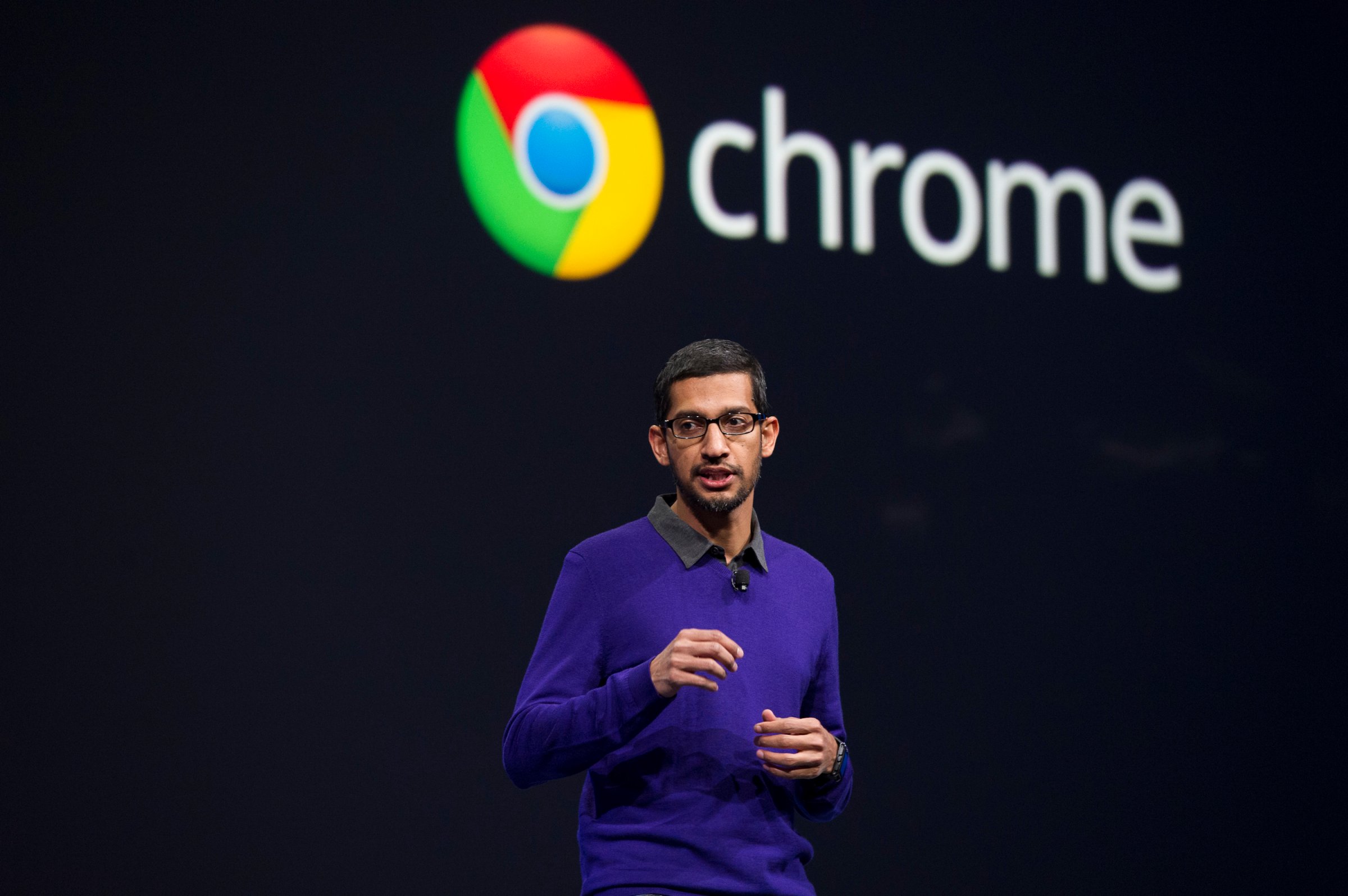
Google announced Monday that it’s separating many of its businesses into a “collection of companies” that will be part of Alphabet, a new company headed by Google CEO Larry Page.
Since launching in 1998, Google has expanded from a search engine into a sprawling operation with operations in everything from the life sciences to self-driving cars. The new corporate structure will give Google itself a tighter focus on its main competencies while spinning off businesses that are “far afield” of those efforts into separate companies, Page said in a blog post.
Google proper will continue to include search, ads, maps, apps, YouTube and Android, the company revealed in an SEC filing. The slimmed-down Google will be led by Sundar Pichai, currently senior vice president for products and Larry Page’s right-hand man.
MORE: Read TIME’s 2013 cover story, ‘Google vs. Death’
Where does that leave projects like Google’s self-driving cars and big acquisitions like smart home copmany Nest? Here, we break down what we know so far about the businesses that will make up Google’s growing Alphabet:
Calico – Google launched this life sciences company in 2013 with the aim of extending human life. The company is devoted to long-term research that may not come to fruition for decades. “We should shoot for the things that are really, really important, so 10 or 20 years from now we have those things done,” Page told TIME about Calico in a 2013 interview.
Nest – The smart thermostat company that Google bought for $3.2 billion in 2014 is the centerpiece in Google’s plan to control the smart homes of the future. Last year, Google Vice President for Human Development Don Harrison told TIME that Nest founder Tony Fadell was a “true CEO” able to run Nest as he saw fit, with Google executives serving more as a board of directors rather than direct supervisors.
Fiber – Google’s high-speed broadband Internet service is now available in three cities, with plans to expand to six more in the coming months.
Google Ventures – Google’s venture capital arm already has a church-and-state separation from the company’s other endeavors, regularly investing in companies that compete with Google products. That line of separation should be even more stark thanks to the restructuring.
Google Capital – This investment arm focuses on late-state growth companies, and like Google Ventures, operates independently of Google’s consumer-product businesses.
Google X – Google’s most ambitious projects often begin in this secretive research department, which has been responsible for the company’s self-driving cars, Google Glass and the Internet-by-balloon initiative Project Loon.
Read next: Here’s Why Google Is Making the Titanic Shift to ‘Alphabet’
More Must-Reads from TIME
- Cybersecurity Experts Are Sounding the Alarm on DOGE
- Meet the 2025 Women of the Year
- The Harsh Truth About Disability Inclusion
- Why Do More Young Adults Have Cancer?
- Colman Domingo Leads With Radical Love
- How to Get Better at Doing Things Alone
- Michelle Zauner Stares Down the Darkness
Contact us at letters@time.com